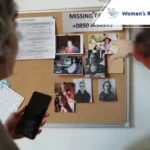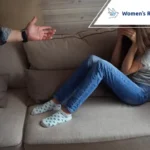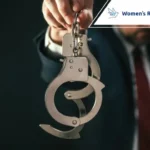How to Report Suspected Sex Trafficking In Hotels, Motels, & Commercial Establishments
In the United States, about 15,000 to 50,000 women and children are forced into sexual slavery every year. The true number of these cases varies as many cases go unreported. Sex traffickers may lure victims through means such as pretending to offer a legitimate job, fake marriage proposals, or offering protection or love, to name a few.
This is especially dangerous for individuals who are already in vulnerable situations and are seeking an escape.
Are you a victim of sex trafficking?
In this article, we will discuss:
- What is sex trafficking?
- Common victims of sex trafficking
- Signs of sex trafficking
- How to report suspected sex trafficking in hotels and commercial establishments
What is Sex Trafficking?
The Centers for Disease Control and Prevention (CDC) defines sex trafficking as a type of human trafficking. It is also considered a form of modern-day slavery. Individuals can be trafficked when they are made to do labor or sex work through the use of force, deceit, or compulsion. Traffickers often take advantage of vulnerable people in order to benefit financially.
The harm associated with human trafficking includes physical and mental health problems, sexual exploitation, varying forms of abuse, insecurity, and displacement from family and community. The psychological trauma experienced by human trafficking victims can last long after the actual exploitation has ended.

Who are the Common Victims of Sex Trafficking?
Individuals of any age, race, gender, or nationality can become a victim of sex trafficking. But certain groups are more prone to being taken advantage of by sex traffickers. Some of the most common victims of sex trafficking include:
- Women and girls – Research has shown that women and girls make up the vast majority of individuals targeted by human traffickers globally. Studies have shown that 71% of human trafficking cases involve female victims, likely a result of them suffering more disadvantages in terms of education, economic empowerment, and social equity compared to their male counterparts.
- Runaway youth – Youth who are either homeless or running away from home are more prone to being exploited, and exposed to inhumane conditions. This is because they may lack a supportive and stable family unit, economic opportunities, or social connections.
- LGBTQ+ individuals – Members of the LGBTQ+ community are more likely to be sexual exploitation victims due to the discrimination and violence they face. Members of this community are often forced into the underground economy, where they may be more easily exploited.
- Children – Children are more susceptible to sex trafficking due to the lack of stable family relationships, financial resources, or social support. Additionally, they may be prone to abuse and violence, which can leave them exposed and powerless.
- Undocumented immigrants – Undocumented immigrants are more prone to being exploited for sex trafficking due to their vulnerability stemming from their lack of legal protection. This increases the chances that they won’t take legal action or report any such cases of exploitation.
Signs of Sex Trafficking in Establishments
It is possible that someone in your vicinity may be a victim of trafficking without you knowing. Traffickers often take advantage of people who are in vulnerable situations and use psychological manipulation, threats, and violence to keep them under their control. It might not always be easy to spot the signs that someone has been trafficked, but there are some indicators that can help you determine if they are a victim of exploitation.
Some warning signs of sex trafficking in commercial establishments may include:
- Checking in for only a few hours instead of an overnight stay
- Refusing cleaning services for several days
- The suspected victim may appear fearful or anxious
- The suspected victim may have few or no personal possessions
- Making payments with a preloaded credit card or cash
- Showing signs of malnourishment, poor hygiene, and physical abuse (bruises, wounds, etc.)
- Asking staff or guests for food or money
- Leaving minors alone in a room for a long period of time
- Avoiding interactions and eye contact with our guests or hotel staff
- Keeping a “Do Not Disturb” sign on the door
- Poor quality clothing
Government Regulation of Sex Trafficking in the Hotel Industry
California law requires hotel and motel employers in California to provide 20 minutes of human trafficking awareness training to all employees and staff.
Under Assembly Bill 1788, a hotel can be held liable if:
- a sex trafficking activity occurred in the hotel, and
- a supervisory employee of the hotel was aware of the activity and failed to inform law enforcement, the National Human Trafficking Hotline, or a victim service organization within 24 hours.
How to Report Suspected Sex Trafficking in Hotels and Commercial Establishments
If you believe that someone you know or someone in your area is the victim of sex trafficking in hotels, motels, or other commercial establishments there are ways you can help.
You must not alert the potential victim or trafficker of your suspicions. Doing so may put yourself or the potential victim in danger.
If you feel you can speak to the potential victim in a safe environment, express your concern for their safety and well-being. Make a mental record of distinct characteristics related to the situation: such as the license plate number of the car, its make and model, any clothing worn, unique identifiers like tattoos, etc., and report this to the proper channels.
You may call the National Human Trafficking Hotline, a 24/7 toll-free hotline, and report this tip.
You may also call the Women’s Rights Group at (844) 240-4967 or reach us through our confidential contact page. We can help you, and the possible victims receive the needed services or assistance.
If you or the potential sex trafficking victim is in immediate danger, call 911.
We Can Help
If you are aware of someone who has been subjected to sex trafficking in hotels, motels, or other establishments, our organization can assist them.
The Women’s Rights Group is a nationwide association that provides aid and support to victims of sexual exploitation in commercial spaces. Our anti-trafficking initiatives have assisted numerous women in recovering the compensation they deserve, enabling them to rebuild their lives. Contact us today and help get sexual exploitation victims the aid and support they need.






